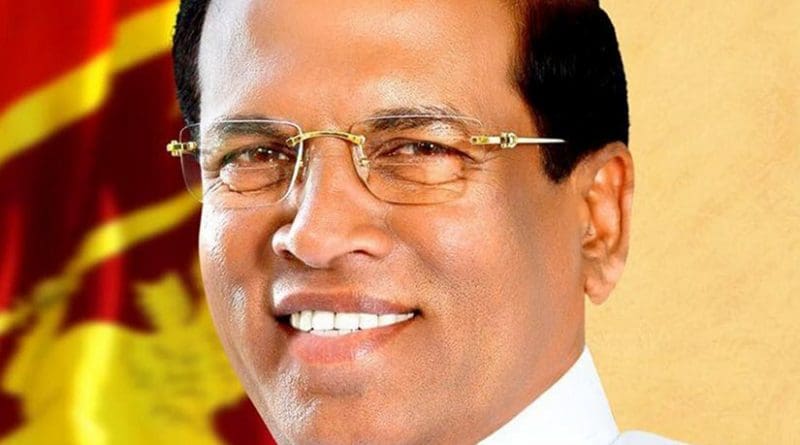Sri Lanka: President Sirisena Declares State Of Emergency
Sri Lanka’s President Maithripala Sirisena has declared a State of Emergency for one week with effect from mid-night Monday, to redress the unsatisfactory security situation prevailing over certain parts of the country.
The State of Emergency had been declared, while empowering Section Two of the Public Security Ordinance within a limited scope. The President’s Media Unit (PMD) confirmed that the Police and Armed Forces have been suitably empowered to deal with criminal elements in society and urgently restore normalcy.
Sirisena’s pronouncement came within hours after a Police curfew was re-imposed in Digana and extended to the Pallekele Police division yesterday, following the tense situation on Monday. Sirisena explained that a State of Emergency had to be declared as a result of riotous and unruly acts of violence which had occurred over the last two weeks, causing damage to life and property. These incidents have caused various tensions and conflicts between religious and ethnic groups with attacks on religious places and vehicles being carried out, they observed further.
Sirisena noted that these acts have not subsided and while some of these incidents had taken place as a result of the ongoing commotion, some had been well planned.
As a measure to control this situation, it has been deemed necessary to bring to effect Section 2 of the Public Security Ordinance. The PMD stated that this would bring back the situation to normalcy, security and ensure the supply of essential services to these areas. The Police and Army have now been given authority to stabilize the situation within the legal frameworks of the Ordinance.
Sirisena has also directed the Security Forces to take action against any persons creating conflict, regardless of their ethnicity, religious background or party affiliation.
Sirisena has also informed them that they should enforce the law in the interest of the people, with least disruption to public life and without violating human rights.

